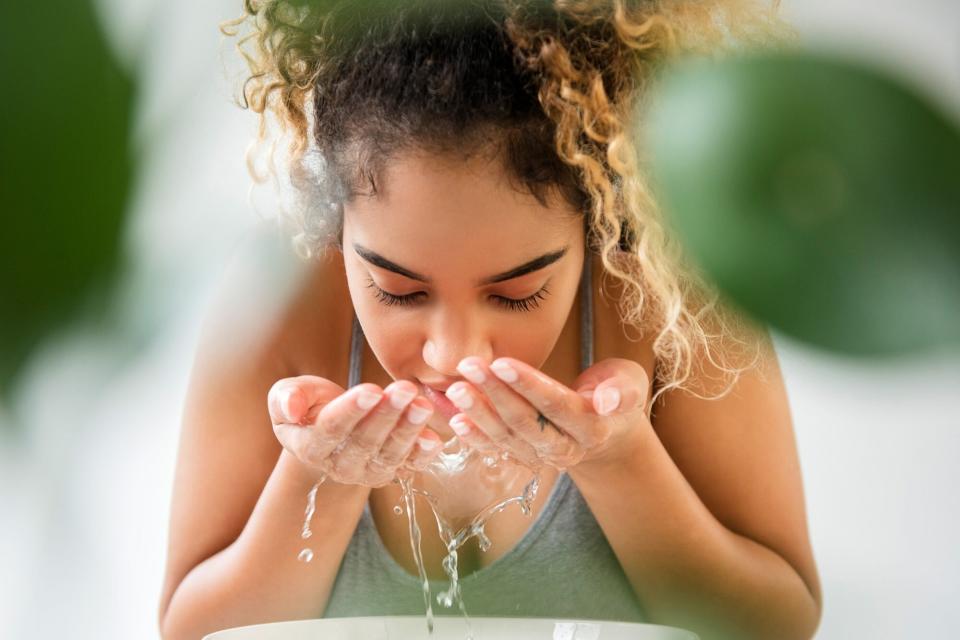How to Tell If Your Home's Water Is Too Hard

If you've ever dealt with a dry scalp or itchy skin, hard water might be to blame. "Hard water forms when ground water comes in contact with naturally occurring minerals such as limestone and gypsum," says Chia Kung, Director of Global Project Management at Culligan International. "Over a period of time calcium and magnesium leaches into the water creating what we refer to as hard water. According to the United States Geological Survey, hard water exists in approximately 85% of the water in the country."

Getty / JGI / Jamie Grill
This means that no matter what kind of shampoo, conditioner, or moisturizer you're using, if your water is hard, you're probably going to have problems down the line. "Over time, hard water can damage hair and skin," Kung says. "Hair can become dull, brittle, and frizzy. Skin becomes dry and irritable, and can even be more prone to rashes." Unsure about the state of your own water? We asked Kung for advice on how to determine where your home's water stands on the hardness scale. Ahead, his best tips for recalibrating off-kilter levels.
Related: How to Remove Hard Water Stains
Learn the common signs that your home has hard water.
One surefire way to know if your water is too hard? Finding spots and residue on items you've washed at home. "If you have hard water, you may notice a film of residue on your dishes, shower, or clothing," Kung says. "As a result, your hair and skin may feel more dry and brittle. This could also shorten the lifespan of items in the laundry, such as clothes and towels, too."
Pay attention to how your appliances are running.
In addition to water stains, if your water is too hard, you're likely to discover particles inside your home's water-dependent appliances, as well. "Hard water can lead to clogged pipes, scaling, and staining on surfaces such as shower doors and water fixtures," Kung says. "It can also decrease the efficiency and lifespan of water-using appliances, including dishwashers, washing machines, and water heaters. If deposits build up, it can greatly damage their performance—which will increase your heating costs while the efficiency of your appliance plummets."
Have your water tested.
To determine if you have hard water in your home, have your water tested, Kung advises: "A local Culligan Water Expert can conduct a free in-home water test." If you prefer to test your water without the help of a professional, water hardness test kits are widely available for purchase, so you can regularly test the hardness (or softness) of your home's water supply on your own.
Add water softener accordingly.
If you discover your home has hard water, don't worry—Kung says softening it is easy and beneficial for a lot of reasons. "Water softeners come in a variety of options to fit your home and budget," he explains. "Water softening technology removes hardness from your water utilizing the process of ion exchange. Unlike hard water, soft water is free of the minerals that can damage your home and your body. In other words, it is gentler on both your body and home." So, whether you call a professional to install a state-of-the-art system or simply invest in a freestanding style, ensuring you have soft water at home can positively impact many aspects of your health and home life.

